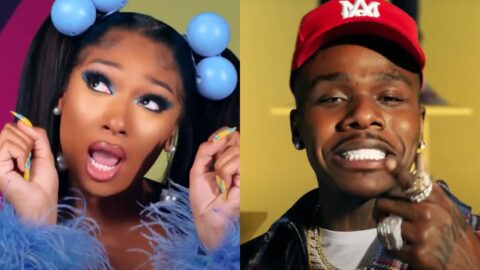
Over the past 15 years, composer Dave Porter has worked on the same TV franchise every single day: first Breaking Bad (2008-2013) and then spin-off Better Call Saul (2015-2022), with a standalone film, El Camino (2019), thrown in. That all came to an end last week when the final episode of Better Call Saul arrived on Netflix.
“I haven’t even begun to wrap my head around what it’s going to be like,” Porter tells NME beforehand, seemingly bereft, “to have it not be a part of my life.”
Breaking Bad followed Bryan Cranston’s chemistry teacher turned meth dealer Walter White and his accomplice Jesse Pinkman, who together turned their tinpot outfit into a Cartel-rivaling organisation. Its prequel series, however, Better Call Saul, allowed Porter to focus on a single character in lawyer Jimmy McGill, later known as the dodgy con artist connected to Walt and Jesse, Saul Goodman. Each show’s score required a different yet familiar approach.
So, in an effort to soothe Porter’s workplace breakup with creator Vince Gilligan, we asked him to take a trip down memory lane for one last time. Read on for the creative story behind some of telly’s most iconic music.
Breaking Bad and Better Call Saul needed to sound different
“It’s been an evolution,” says Porter, when we ask how he gave each part of the Breaking Bad universe its own audio DNA. “When we began work on Breaking Bad, the one thing I definitely wanted to do was to make the music feel unexpected – and have a scope and a scale that was different from what was on television at the time.
“Throughout the course of Breaking Bad… the story got darker and much larger, so the score reflected that. After Breaking Bad ended, there [needed to be] some recalculations, “ he explains. “We were telling a very new story about a person we thought we knew, Saul Goodman, but now we don’t [because Better Call Saul takes place before the events of Breaking Bad]. So there was a big shift there.”
They used some surprising instruments
For Breaking Bad, Porter acquired some unexpected instruments and sounds to craft a more unique aesthetic. On Better Call Saul, though, he went for a more ‘70s rock-inspired approach.
“Breaking Bad relied heavily on ‘found sounds’ – things that I recorded or manipulated. [I also used] a lot of instruments [from other parts of the world], as I really wanted to take [the viewer] out of the confines of Albuquerque, [where the show is set]. It’s such a universal story and later becomes a story of global scope.
“When we started Better Call Saul, I wanted to get away from the synthesised instruments and towards the more performed instruments: a lot of electric pianos, organs, guitars, live drums and percussion. It was my ‘70s rock n roll palette,” he adds. “Then gradually the score for Saul started to move darker and closer to the sound of Breaking Bad.”
Revisiting much-loved characters was fun
Many of the faces seen in Breaking Bad, including Walt and Jesse, are seen again in Better Call Saul, so Porter had the opportunity to deconstruct and reinterpret his own past work. “We had a foundation for a lot of these characters already,” he says. “We knew [people like] Gus and Mike in Breaking Bad at the peak of their powers, what I’ve done is to make them a little simpler and more vulnerable.”
Similarly, Jimmy McGill (Saul’s original persona and the one we meet at the start of Better Call Saul) required a new theme from Porter. “Completely redesigning the score for Jimmy was a mandate from [showrunners] Peter Gould and Gilligan,” says Porter. “I didn’t realise the brilliant material we already had until we started… It was inspiring to me, as a composer, to revisit.”
The end of a musical journey
The finale of Better Call Saul marks the end of a 14-year journey for all the creatives involved in the world of Breaking Bad, and the last season of that long voyage has been “really special” for Porter.
“When all of our writers bring all of these disparate ideas and things together, they all really come to a head in the end,” he says, looking back on how the seasons have evolved. “Similar to Breaking Bad, Better Call Saul gives me the most opportunities as the stories come to a close, and I’ve enjoyed it so much. I’ve done my best to make them as impactful as possible.”
‘Better Call Saul’ is available to stream on Netflix now
The post ‘Better Call Saul’’s Dave Porter on creating some of TV’s most iconic music: “It’s been an evolution” appeared first on NME.


